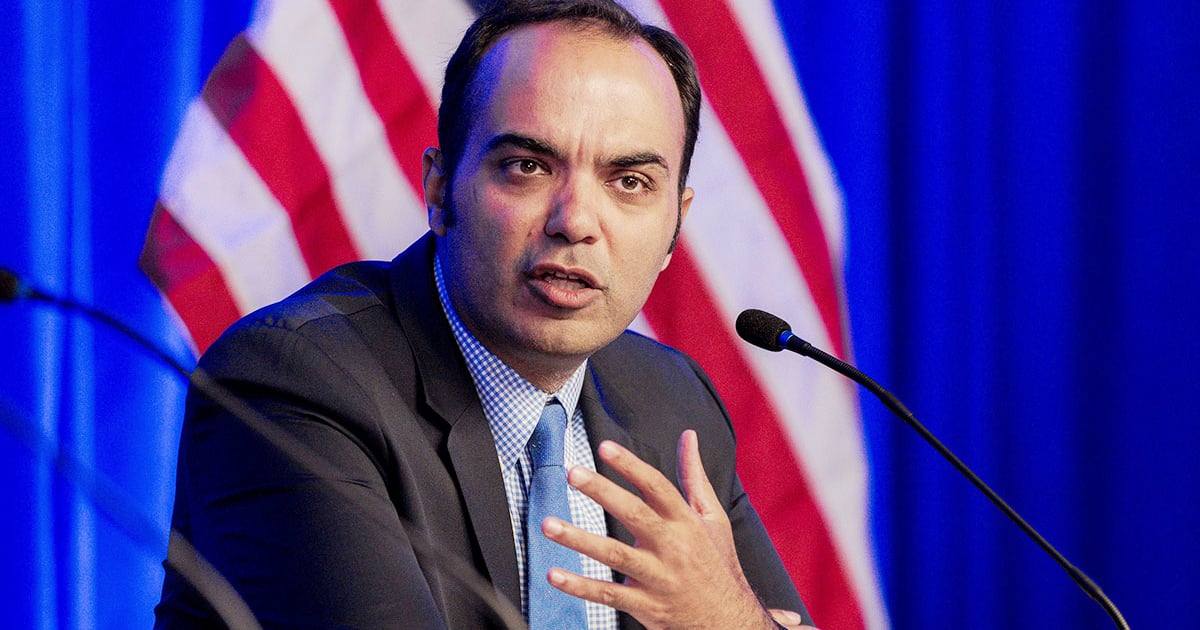
The Consumer Financial Protection Bureau on Wednesday sued the servicing arm of U.S. Auto Sales, alleging USASF Servicing cost consumers more than $10.1 million by mishandling guaranteed asset protection refunds, double billing for collateral protection insurance and failing to apply excess customer payments to interest.
The U.S. Northern District of Georgia lawsuit also alleged USASF Servicing wrongfully repossessed vehicles at least 82 times, erroneously triggered vehicle starter interrupter “kill switches” at least 7,500 times and on more than 71,000 instances incorrectly activated a 10-second series of tones meant to signal late payments — a less severe kill-switch feature — when customers turned their vehicles on or off.
The buy-here, pay-here used-vehicle retail group had more than 30 locations until it ended most of its operations in April, according to the CFPB. Affiliate USASF Servicing had managed auto loans originated by the group. On May 22, Westlake Portfolio Management took over servicing duties of what was a $741.5 million portfolio and about $391 million of loans bundled into securities for investors. Westlake said it also was handling more than $195 million in charged-off loans.
Emails to U.S. Auto Sales owner Milestone Partners and previous counsel for the dealership group have not yet been returned. As of late morning Friday, federal court records did not list an attorney for USASF.
“The CFPB is suing USASF for a range of misconduct, including illegally activating devices that prevented borrowers from starting their cars,” CFPB Director Rohit Chopra said in a statement Wednesday. “Given the rising cost of cars during the pandemic and jump in auto loan debt across the country, the CFPB is working to root out illegal activity in this market.”
The CFPB said U.S. Auto Sales had sold GAP to customers from February 2017 to October 2022 and bundled the cost into their auto loans. The finance-and-insurance product pays any loan balance not reimbursed by traditional auto insurers — which are only obligated to cover the actual value of the vehicle — after a total loss.
U.S. Auto Sales charged customers up front for the cost of GAP coverage running the entire loan term, which means consumers would merit a refund in situations where the loan didn’t go the distance, according to the CFPB. For example, in a situation where USASF Servicing had to repossess a vehicle and charge off the loan, “some of the GAP premiums that the consumer paid and the interest charged on such premiums were not earned and are therefore eligible to be refunded by the GAP administrator,” the CFPB said.
Normally, USASF Servicing after a repossession and charge-off would solicit that refund from the product administrator and apply the money to the balance the customer still owed on the loan, the CFPB said. But USASF Servicing failed to do this for at least 2,870 borrowers, leaving that collective group short more than $1 million that should have been credited to their loans, the CFPB said.
A similar issue arose with GAP on loans paid off early, according to the CFPB. If a third-party lender paid off the customer’s loan early — as part of a refinance, for example — USASF Servicing would request a refund and declare the cancellation date to be the payoff date, the CFPB said. But if a customer paid off the loan early, USASF Servicing allegedly did nothing unless the customer requested a refund specifically. And it would declare the request date, not the payoff date, to be the cancellation date.
This cost about 5,600 customers at least $6 million collectively, the CFPB said.
Collateral protection insurance shields a lender if an auto borrower lacks physical damage insurance on the vehicle. USASF Servicing customers could obtain it for about $100 a month by buying it along with the vehicle or having it automatically applied if they lost their traditional comprehensive and collision insurance on the vehicle. However, USASF wound up double billing customers at least 34,000 times, costing the policyholders about $1.9 million collectively, the lawsuit stated.
“USASF identified four causes of its double billing, including manual and system-processing errors by USASF,” the lawsuit stated. “Consumers who were charged twice for CPI were deprived of the use of their funds totaling $1.9 million, and in addition some consumers became delinquent because of the billing error and as a result had their cars repossessed and were subjected to erroneous debt-collection efforts.”

